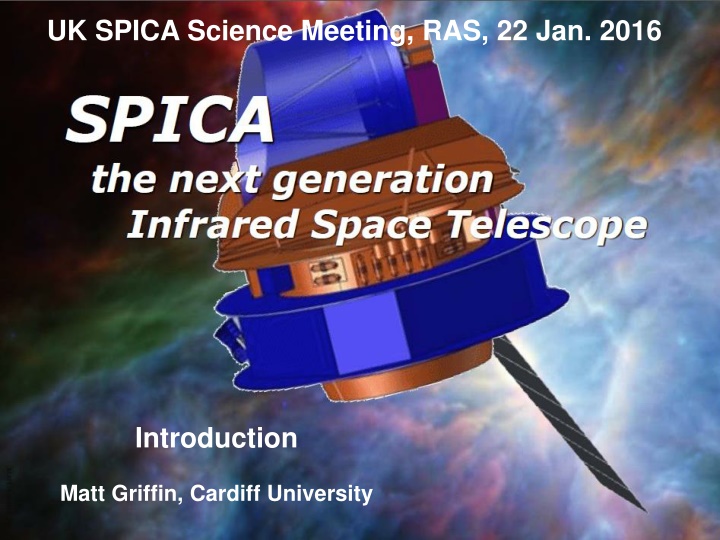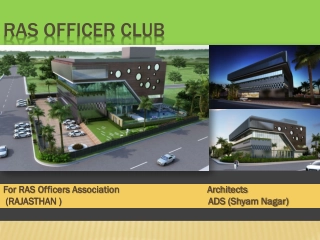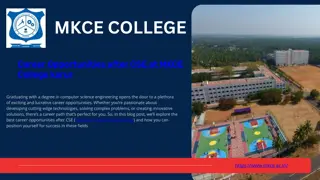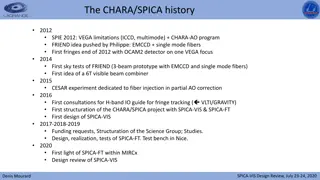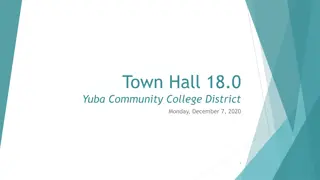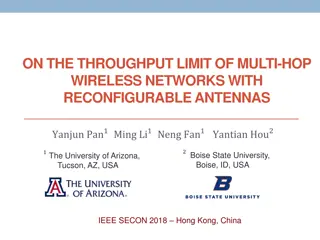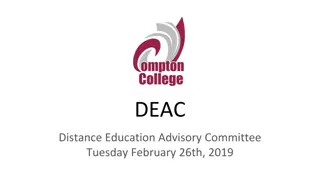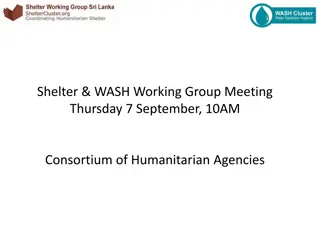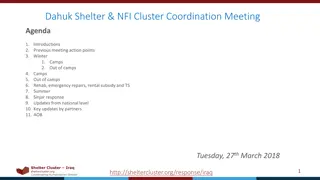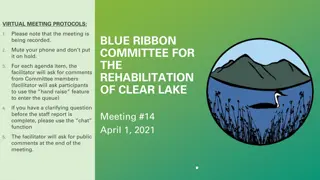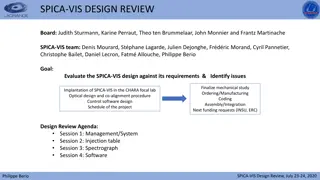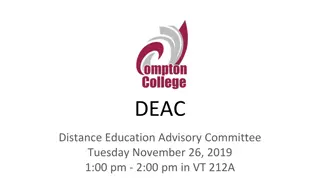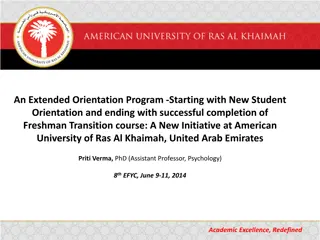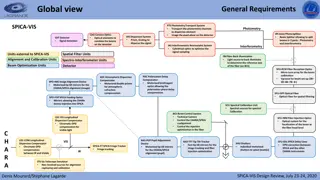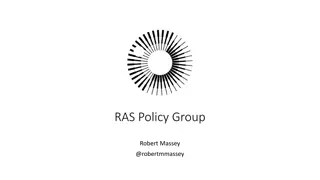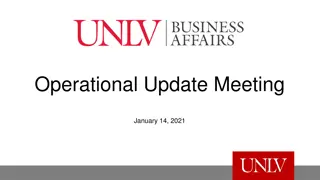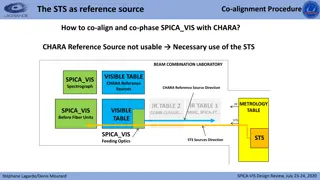UK SPICA Science Meeting at RAS: Updates and Opportunities
Explore the UK's involvement in the SPICA project, from its initiation to current status and future prospects. Delve into the scientific capabilities, priorities, and engagement opportunities for the UK community. Learn about the SPICA team's submission to funding bodies and the path towards promoting SPICA within the UK. Discover the key objectives and agenda of the meeting, highlighting discussions on galactic science, nearby and distant galaxies, detectors, and more.
Download Presentation

Please find below an Image/Link to download the presentation.
The content on the website is provided AS IS for your information and personal use only. It may not be sold, licensed, or shared on other websites without obtaining consent from the author.If you encounter any issues during the download, it is possible that the publisher has removed the file from their server.
You are allowed to download the files provided on this website for personal or commercial use, subject to the condition that they are used lawfully. All files are the property of their respective owners.
The content on the website is provided AS IS for your information and personal use only. It may not be sold, licensed, or shared on other websites without obtaining consent from the author.
E N D
Presentation Transcript
UK SPICA Science Meeting, RAS, 22 Jan. 2016 Introduction Matt Griffin, Cardiff University
Meeting Objectives Provide an update on SPICA status and plans Assess SPICA scientific capabilities and priorities for the UK community Clarify opportunities/mechanisms for UK community engagement with the SPICA team, the SPICA M5 proposal, and beyond Plan for future promotion of SPICA within the UK
Agenda 10:30 Introduction Matt Griffin 10:50 SPICA and M5 Peter Roelfsema 11:10 SPICA in Japan Takashi Onaka 11:20 UK technical participation Matt Griffin 11:40 SPICA science overview Dave Clements 12:00 Galactic science Derek Ward-Thompson Mark Wyatt Mikako Matsuura Jane Greaves Helen Fraser 13:10 Lunch
Agenda 13:10 Lunch 14:10 Nearby galaxies Floris van der Tak Cristina Popescu Izaskun Jimenez-Serra 15:10 Distant galaxies Cedric Lacey Michal Michalowski Carlotta Gruppioni Mat Page Mattia Negrello 16:30 Detectors Stafford Withington 16:50 Discussion and wrap-up
SPICA in the UK UK participation in SPICA initiated by Bruce Swinyard in 2004 SPICA-SAFARI consortium UK-led initially, then transferred to Netherlands in 2009 No direct UK funding for SPICA since then but ESA CTP programme for related detector development UK SPICA team made submission to AAP and 2012 STFC Programmatic review. Based on - UK ability to make essential technical contribution - Strong science case - Planetary system formation and evolution - Stars and the lifecycle of dust and gas - Nearby Universe - Galaxy evolution and cosmological surveys
SPICA in the UK UK participation in SPICA initiated by Bruce Swinyard in 2004 SPICA-SAFARI consortium UK-led initially, then transferred to Netherlands in 2009 No direct UK funding for SPICA since then but ESA CTP programme for related detector development UK SPICA team made submission to AAP and 2012 STFC Programmatic review. Based on - UK ability to make essential technical contribution - Strong science case - Planetary system formation and evolution - Stars and the lifecycle of dust and gas - Nearby Universe - Galaxy evolution and cosmological surveys
SPICA in the UK Reasonable outcome Rated g-2 in PR (as good as can be expected for a proposed future mission) Favourable recognition in the 2012 AAP report SPICA and SAFARI have evolved since then - 2.5-m telescope - SAFARI grating spectrometer instead of FTS - Now planned as a joint European-Japanese mission - M5 rather than M4 But still as exciting as ever scientifically, and case for UK technical involvement is as strong as before SPICA not on UKSA radar today, but UKSA is amenable to supporting ESA M missions
Possible M5 Schedule ESA call for proposals Apr. 2016 Deadline for proposal submission Aug./Sept. 2016 Selection of missions for Phase-A study Early 2017 Selection of mission for implementation ~ End 2018 Launch ~ 2029
Next Steps No prospect of UKSA funding unless/until 1. SPICA is selected for Phase-A study by ESA 2. UKSA receives strong formal advice from STFC that SPICA is scientifically a high priority mission for the UK community Assist with strong M5 proposal Build support within the UK scientific community for SPICA and engagement with the SAFARI Consortium Ensure that STFC register SPICA as an important mission
UK SPICA Science Meeting, RAS, 22 Jan. 2016 Potential UK Contributions to SAFARI Matt Griffin, Cardiff University
Potential UK Technical Participation Based on Herschel experience and strong detector development programmes, UK can make key CoI-level contribution to SAFARI Following handover of PI-ship in 2009, technical participation was prioritised: 1. Contribution to detectors 2. Ground Segment 3. Filters and quasi-optical components Change from FTS to grating spectrometer No impact on priorities Poses different challenges for the detectors
Detectors See talk by Stafford later Affordability of detectors for SAFARI likely to require contributions from several countries UK USA Netherlands Exact division of responsibilities TBC UK role will be major and highest priority because Return on many years of STFC investment in superconducting detector development High-profile contribution, unique and key to mission success Conducive to strong voice and influence in the international consortium
Ground Segment Herschel (and Planck) experience Early, coordinated, sustained investment in ground segment pays dividends High data quality scientific productivity Thorough national-level understanding of system and instrument behaviour promotes strong community engagement in science planning and implementation Potential UK contributions Detector data pipelines and calibration Support of ground and in-orbit testing Definition, simulation, optimisation of observing modes High level of UK expertise in these areas from Herschel Substantial investment in SAFARI detectors could not be fully justified without GS contribution
Filters and Quasi-Optical Components Essential for SAFARI - Band selection - Thermal optimisation UK is effectively sole supplier through Cardiff group technology Third priority for UK funding at this stage as discussion underway with Sweden about collaborative provision
Guaranteed Time SPICA guaranteed time arrangements still to be defined/agreed Not likely to be as high a proportion of mission time as for Herschel Proposed UK approach to GT Regardless of the absolute amount or the SAFARI Consortium rules for GT, the UK proportion will be opened up to all UK institutions A UK SPICA Science Team will be formed to define and manage that process No special rights for institutions making technical contributions to SAFARI
